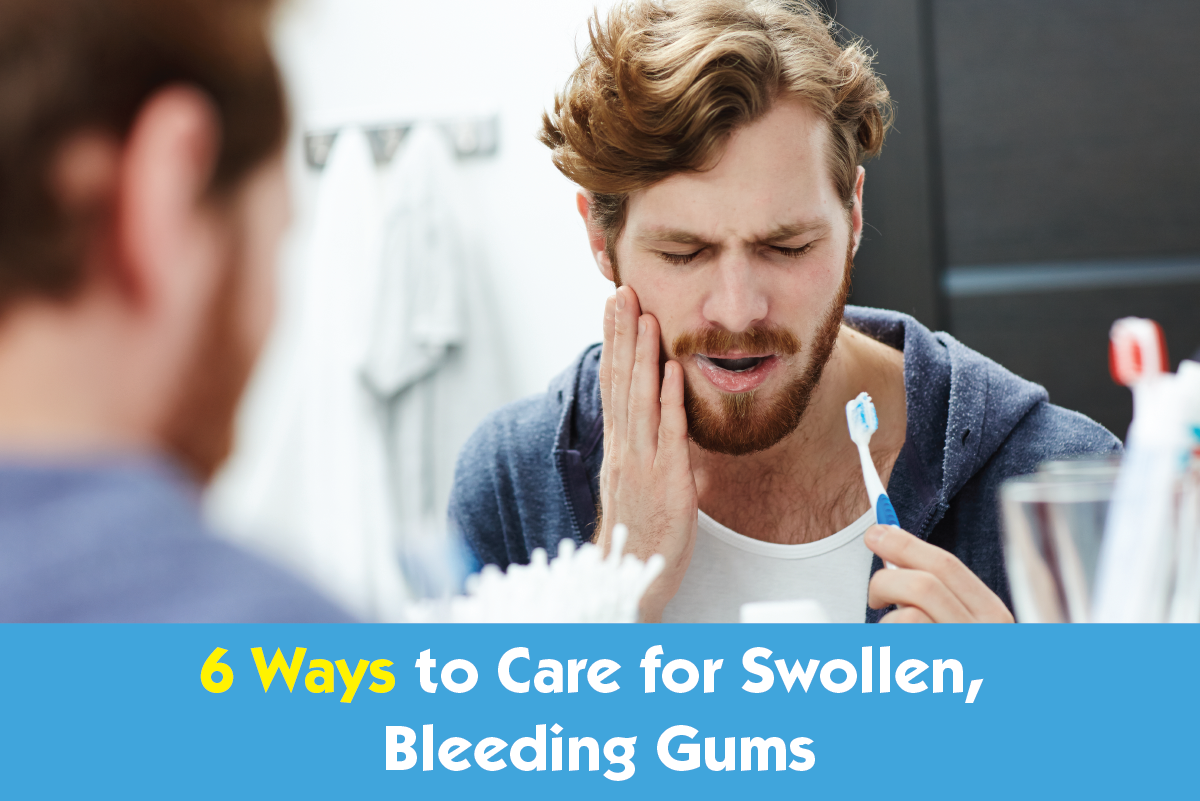Dealing with dry mouth (xerostomia) is enough to keep anyone’s frown turned down. Dry mouth, which is simply a lack of saliva production, can range from mildly annoying to downright painful.
Dry mouth is also embarrassing! If you’ve ever had that dry smacking sound when you talk or saliva at the corners of your mouth, then you know what we’re talking about!
Is Dry Mouth Serious?
Saliva production is essential for a healthy mouth. It’s a natural defense against plaque and bad breath, and helps with taste and digestion.
So it’s no surprise that often dry mouth sufferers often have poor oral health, halitosis, and digestive issues.
Left unchecked, these things can lead to even bigger problems like nutritional deficiencies, expensive dental bills, and even un-pleasant social interactions.
Why Is My Mouth Dry All the Time?
Any of these factors, alone or in combination, could be the cause of your dry mouth …
Medications: Over 400 prescribed and over-the-counter medications, from allergy meds to antidepressants, can give you dry mouth. If your dry mouth is more than a mild annoyance, talk to your doc about switching medications or adjusting the dosage.
Stress or Illness: Stress and anxiety can do crazy things to our bodies, including giving us dry mouth. Certain illnesses or infections can also impact our saliva flow.
Lifestyle: Enjoy a few too many guilty pleasures? Alcohol, coffee, and cola consumption all dry out the mouth. Cut your consumption and see how it helps your dry mouth.
Radiation/Chemotherapy Treatment: Damage to the salivary glands can often occur during radiation, and chemo can change the consistency and amount of saliva.
Age: Your mouth naturally produces less saliva as you age, making dry mouth a common problem for seniors and women going through menopause.
Dental Products: Ironically, the toothpaste and mouthwash you use every day for a healthy smile could actually be the cause of your dry mouth.
What are the Symptoms of Dry Mouth?
If your saliva is in short supply, you may be experiencing any or all of these dry mouth symptoms:
- Sore throat
- Frequent thirst
- Difficulty swallowing food
- Problems wearing dentures
- Altered sense of taste
- Mouth sores
- Bad breath
- Tooth decay
- Cracked lips
- Sticky feeling in the mouth
6 Tips for Treating Dry Mouth
1. Don’t Say No to H20
Drinking water seems like an obvious remedy to cure dry mouth, but many people fall short in this department. The key to preventing dry mouth is to be proactive with your water intake: don’t wait until your mouth is already dry to start glugging down a glass of water. Sip water throughout the day, and especially with meals.
2. Break Up with Your Mouthwash
Relationships are supposed to be about give-and-take. But here’s the thing about alcohol-based mouthwashes you’ll find in stores: they TAKE your saliva and GIVE you dry mouth (along with bad breath). Not exactly a healthy relationship, is it?
Break up with your current mouthwash and get to know Oxyfresh Fresh Breath Lemon Mint Mouthwash. This mouthwash is alcohol-free, flavored with natural essential oils, and perfect for preventing dry mouth!
3. Become a Nose Breather
When you breathe through your mouth, your gums and tongue naturally dry out. Dry mouth symptoms become even worse if you sleep with your mouth open at night. Old habits are hard to break, so do some conscious breathing exercises and set reminders for yourself to breathe through your nose.
4. Suck It Up
Suck on sugar-free candies to lubricate your mouth. Steer clear of the ones with sugar, as sugar promotes decay and dry mouth.
5. Air Supply
Nope, you don’t have to listen to sad ballads and have a good cry in your car. By “Air Supply,” we mean the air in your bedroom. Is it dry? An easy answer for how to get rid of dry mouth is to run a humidifier at night.
You can hydrate the rest of your home too by boiling water on the stove, setting out decorative bowls of water, or hanging your laundry to dry on a rack.
6. Look at Your Toothpaste Label
Got a sneaking suspicion that your dry mouth is caused by toothpaste? You could be right! Most toothpastes contain sodium lauryl sulfate (SLS), a surfactant added to toothpastes to make them foam. Psychologically, people associate foaming action with better cleaning.
In reality, sodium lauryl sulfate is a major cause of dry mouth, along with annoying mouth problems like canker sores, mouth ulcers, and chapped lips.
Meet the Best Dry Mouth Toothpaste on the Planet
Get rid of your dry mouth for good with Oxyfresh Maximum Fresh Breath Lemon Mint Toothpaste. This SLS-free toothpaste for dry mouth and sensitive teeth has no dyes, no artificial flavors, and no harsh abrasives that can erode your enamel and dull your white, bright smile.
Plus, it contains the exclusive odor-neutralizing ingredient Oxygene®. This safe, non-toxic ingredient oxidizes bad breath molecules, leaving your breath minty fresh for hours at a time!
Dentists love this dry mouth toothpaste, and you will too …
- With Zinc for added fresh breath protection
- No sodium lauryl sulfate (SLS)
- Super-concentrated so it lasts 4x longer than store brands
- Flavored with a zesty blend of natural essential oils – tastes great AND moistens the mouth
- Sweetened with xylitol, a natural ingredient in fruits and veggies that fights plaque and won’t dry out the mouth like sugar alcohols
For over 30 years, Oxyfresh has set the standard for premium, professional-grade dental products that you can use right at home.
Experience the best dry mouth toothpaste for yourself – make the switch to Oxyfresh Maximum Fresh Breath Lemon Mint Toothpaste for dry mouth and sensitive teeth.
>>>Give Your Dry Mouth the Brush-Off. Try Oxyfresh Maximum Fresh Breath Lemon Mint Toothpaste today.



